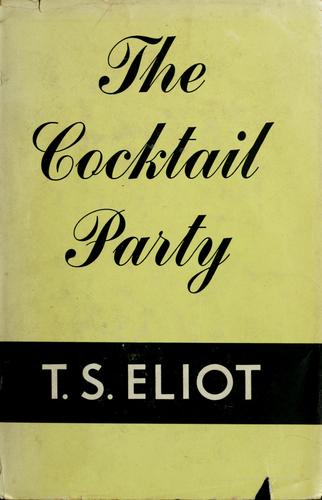This was one of my attempts at reading more "literary" works, and while I did read it, I have to say that I didn't enjoy it much. I waded my way thru Eliot's "The Wasteland" back in my college days, so I'm not sure why I thought a play by him would be any better. Luckily, it's short.
The whole thing is written in free verse, which I am not a fan of. And as to "what" the play is about, good luck with that, too. It starts off normally enough with a scene set in the drawing room of Edward and Lavinia Chamberlayne. Edward is attempting to entertain a group of friends as his wife, Lavinia, has left him. A strange man who prefers to remain anonymous is also there, and Edward confesses that his wife has left him. The stranger asks if Edward wants to see her again, to which Edward gives thought, then answers "yes", that despite everything, he believes he still loves her. The stranger indicates that Lavinia will appear on the morrow, but that Edward must not ask her any questions.
Some of the previous guests return and are in and out of the next few scenes, all set in the drawing room. When the second act begins, we are at the office of Sir Henry Harcourt-Reilly, an advisor or psychiatrist of sorts. He meets with Edward, then Lavinia comes in, and there's lots of talk about what they want, but in a very existential way. After they agree to give their marriage another chance, the "advisor" meets with one of the party guests, Celia, and tells her that she has a choice about her life, too.
The third act is again in the Chamberlaynes' drawing room and again the same guests are there, all but Celia. Turns out she took one of the path's suggested by Sir Henry and was killed in a foreign country on a mission of mercy (or something like that, I'm still not sure). There's more existential talk about how life is strange, etc, then the play closes.
So what can I say about this? Well, if the reviews on Amazon are any indication, what I can say is that I just don't get this piece at all. It feels like it should be deep and thoughtful, but I mostly just found it boring and confusing, and I don't attribute all that to the free verse. Maybe in the time it was originally published it made more sense, but I just felt like I wasted my time.

No comments:
Post a Comment